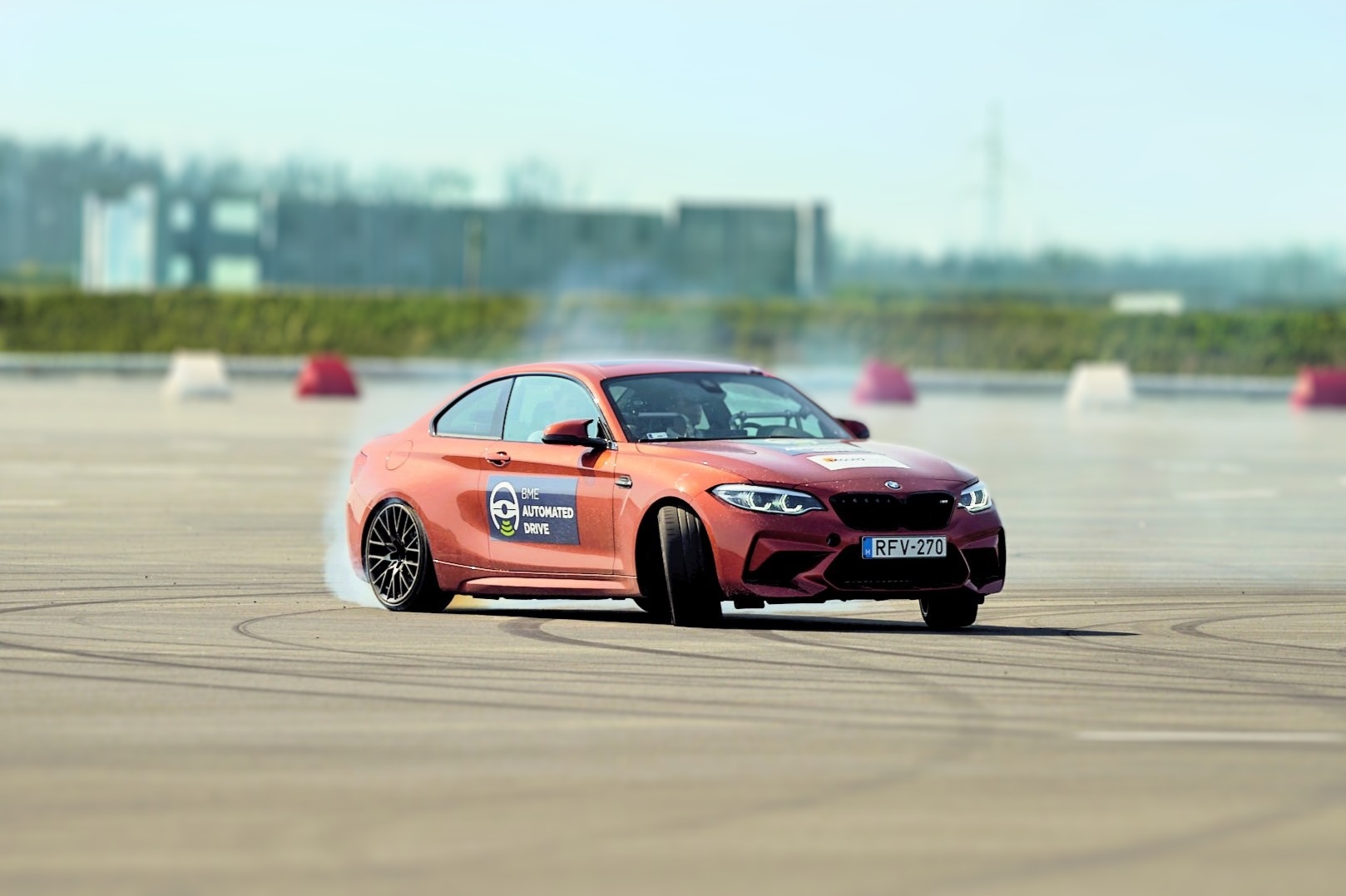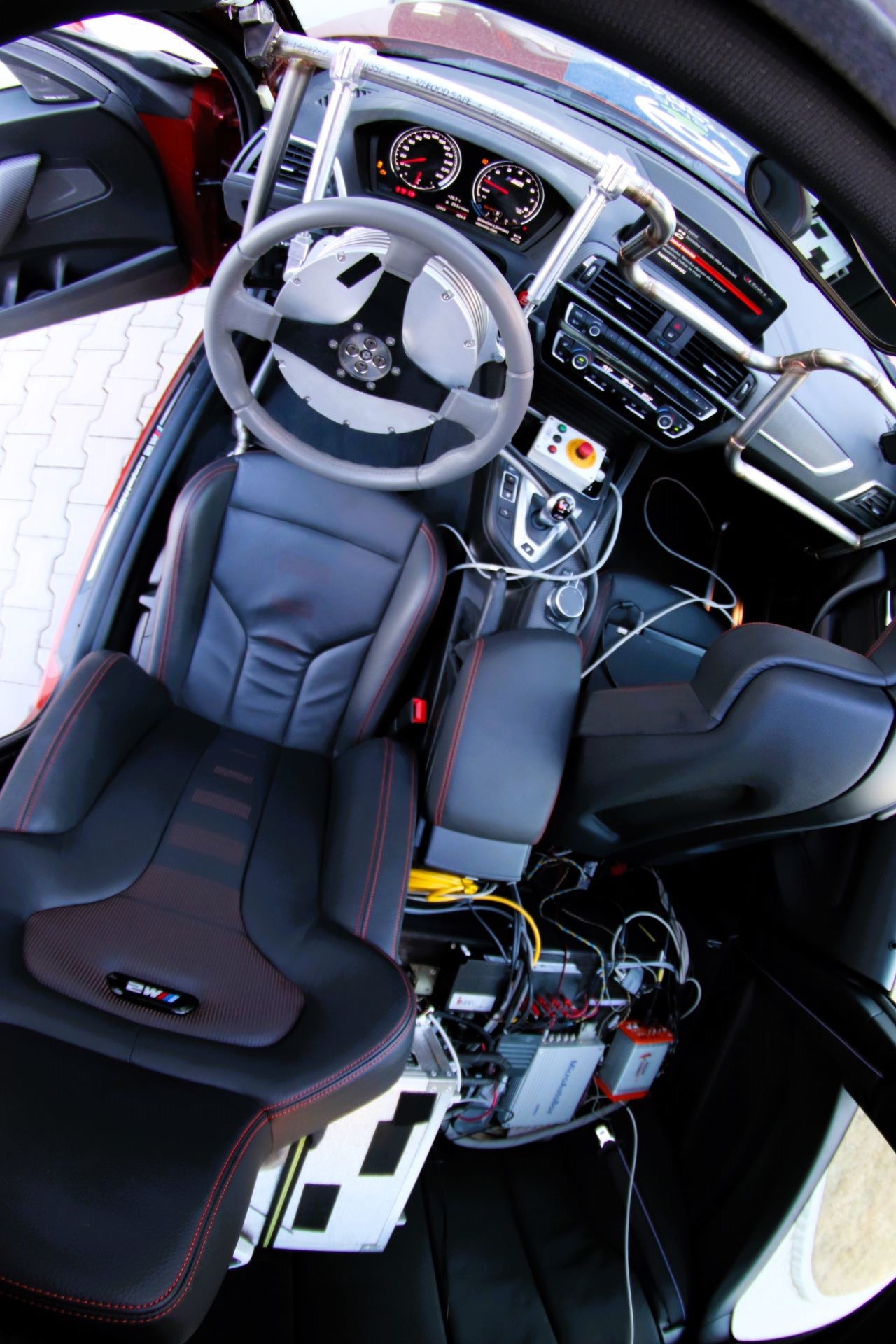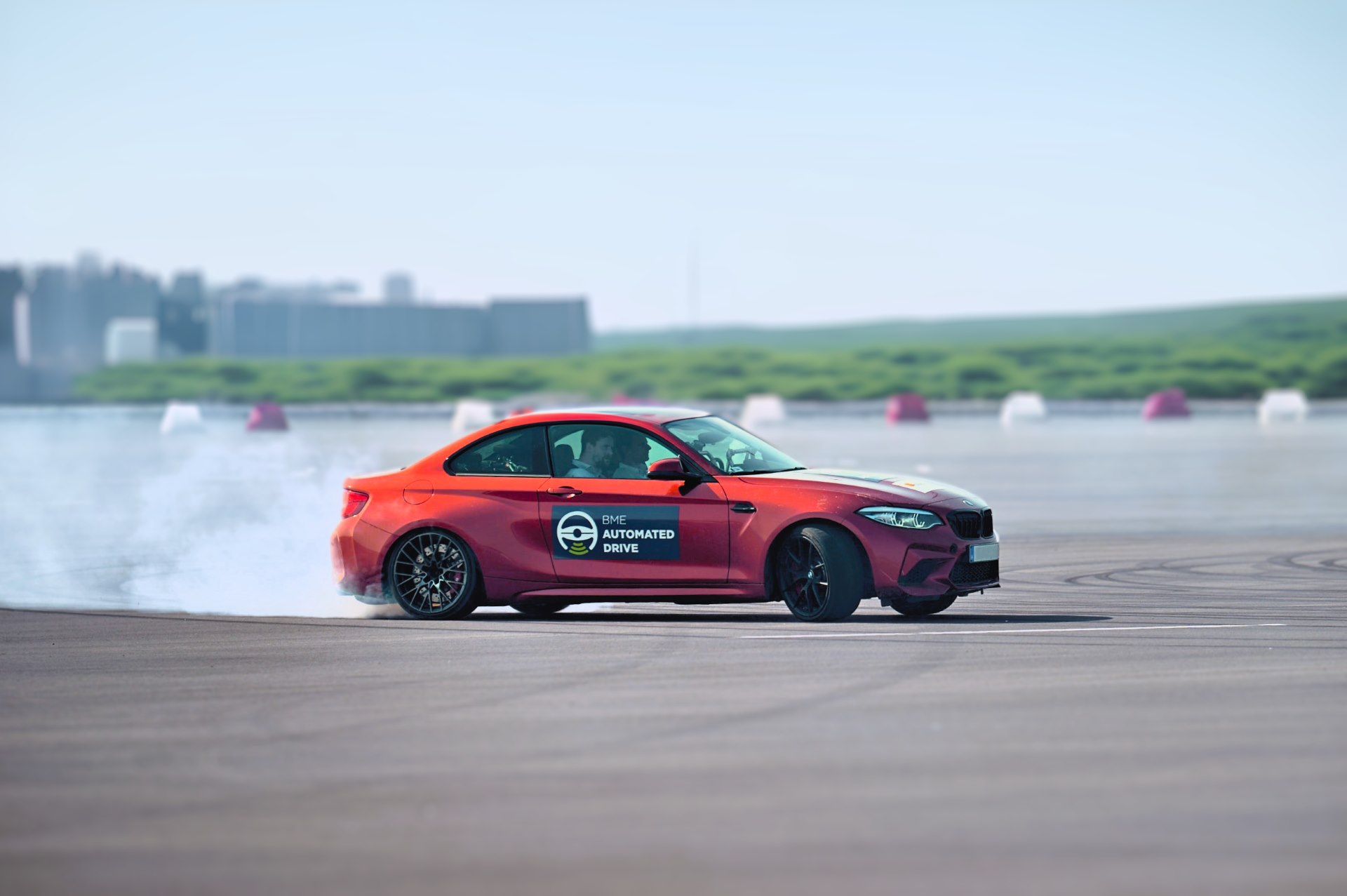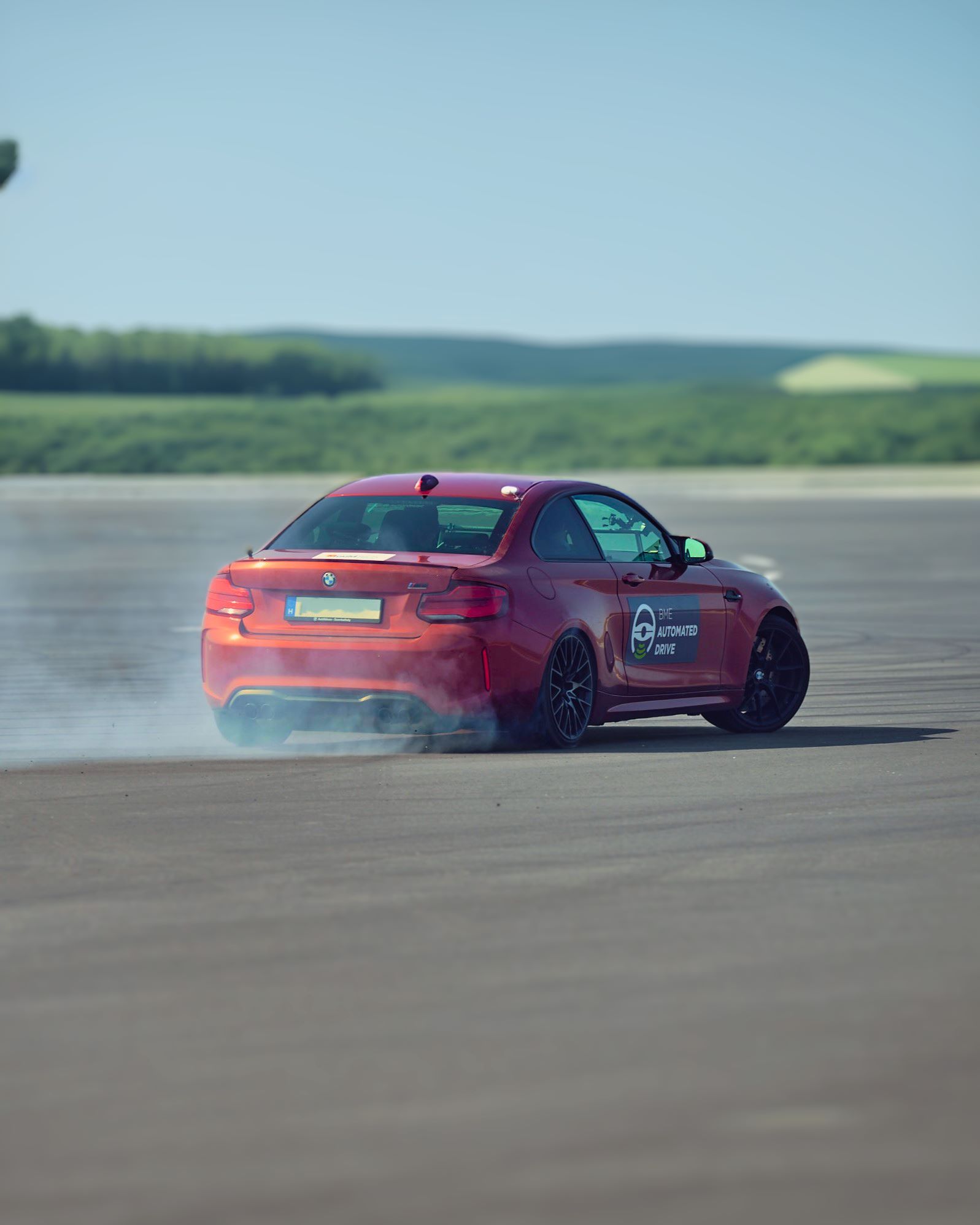Vehicle Dynamics and Control
The main professional and research areas
The work of the research group is focusing on the “in-vehicle” technologies of self-driving cars, including the functions and algorithms located within the decision-making layer. The inputs to the decision layer come from the environment sensing, sensor fusion and mapping layers. It intervenes the vehicle’s behaviour through the chassis actuators such as the interfaces provided by the steering, braking and drive systems.
The main challenges of the decision-making layer are the development of motion planning and motion control algorithms. The problems to be solved in motion planning arise from the computational complexity, as real-time decision making is required for each of the various traffic situations. In addition, kinodynamic approaches and spatio-temporal trajectory planning are the main research areas. The challenges in motion control arise from the nonlinear behaviour of the vehicle and tyres, the increasing number of actuators in the vehicle system (e.g. wheel independent braking/driving/steering, etc.) and the uncertainty of the road traction potential.
Our top research priority is the automatic handling of the vehicle at the limits of friction and the application of the results in accident avoidance systems. We are committed to demonstrating the performance of the functions and algorithms we develop in real-world conditions and to their industrial exploitation. This is made possible by the Group’s drive-by-wire BMW M2 Competition test vehicle, its sensors and rapid prototyping hardware, and the synergistic relationship with the ZalaZONE automotive proving ground.
Key industrial partnerships, most significant projects
The Group is actively involved in the work of the Autonomous Systems National Laboratory (ARNL). Within the project 2020-1.2.3-EUREKA-2021-00001, it collaborates with TU Wien Institut für Mechanics and Machatronics and the Austrian motorsport car manufacturer STARD. In addition, it is actively collaborating with an international automotive Tier 1 supplier and the Hungarian Mould Tech Systems Kft. and Inveture Automotive Plc.
Key results that are also of industrial use
In order to facilitate the industrial exploitation of the research results, we filed an international PCT patent application and established iMotionDrive Kft. as a start-up/spin-off company of the research team to enable commercialization.
The research team’s relations with students
Our research team actively offers thesis and TDK topics for students, which not only provide the opportunity to get involved in a cutting-edge research topic, but also give the best students the chance to try out the functions resulting from their work on a real test vehicle. Students who have already proven their talent are welcome to work as PhD students or get involved in actual industrial projects.
More interesting details can be found ona BME Automated Drive.



